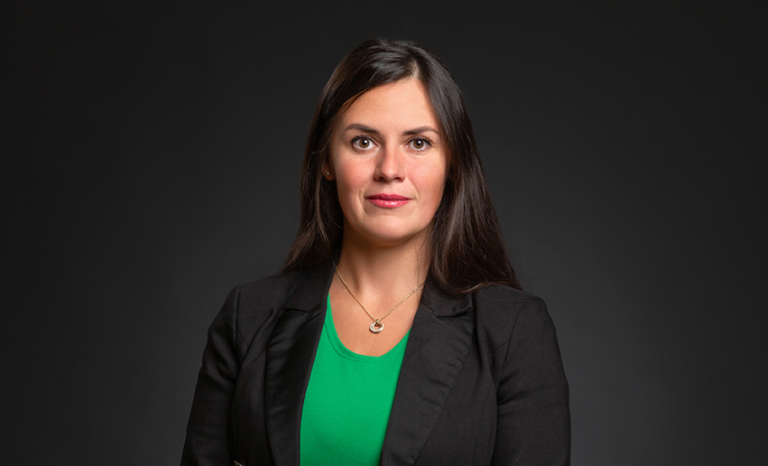Date of publication: 2 April 2024
Alla Tsymanovska, Medical Law Attorney
Source: Client’s Choice 2023: TOP-100 Lawyers of Ukraine
The domain of medical law stands as a specialized field within the legal landscape, holding significant prominence in Ukraine. This article delves into the latest advancements in medical legislation, addressing pivotal concerns such as the representation of patients’ and/or their relatives’ interests in instances of medical errors, the licensing of novel medical practices, as well as the subjects of mobilization and medical confidentiality.
Overview of key legislative innovations
Over the past couple of years, the nation’s leadership has been actively spearheading legislative changes in Ukraine aimed at introducing novel forms of support for servicemen, veterans, and their families.
One notable development is the Decree No. 2118 of Ministry of Health, On the Organization of Providing Psychosocial Assistance to the Population, dated 13 December 2023. This Decree officially endorsed the protocol for delivering psychosocial aid and services pertaining to mental health concerns, inclusive of suicide prevention and the psychosocial facets of rehabilitating war veterans and other societal segments. Long-awaited by centers specializing in psychological rehabilitation and social support, this decree standardizes procedures, offering clarity where previously there was reliance on general knowledge. By streamlining the process for establishing new centers, this protocol aims to broaden the reach of assistance to a wider demographic in need. It’s essential to acknowledge that post-traumatic stress disorder (PTSD) among military personnel is a distinct, enduring condition that may lack positive progression over time. Hence, a tailored approach is paramount for this patient demographic.
Hence, drawing from the experiences of nations with a rich history of serving military personnel (veterans) and addressing challenging patient cases, Ukraine has embarked on the path to legalize medical cannabis. On 15 February 2024, the President endorsed the corresponding legislation, which will come into force on 16 August 2024. The law targets the imperative treatment of oncological diseases and PTSD stemming from warfare. It stipulates that the utilization of hemp plants for purposes other than medical and industrial, as well as scientific and technical pursuits, remains strictly prohibited. The anticipated benefits of medical cannabis include alleviating anxiety, mitigating painful memories and intrusive thoughts, and facilitating restful sleep, thereby offering respite from distressing symptoms. The prescription and distribution of medical cannabis will be complemented by the establishment of new departments within hospitals or specialized clinics, fostering job creation.
Another noteworthy legislative stride is the adoption on 7 February 2024 of the Law of Ukraine, On Introduction of Amendments to Certain Laws of Ukraine Regarding Ensuring the Right of Military Servicemen and Other Persons to Biological Parentage (Maternity) to Safeguard the Gene Pool of the Ukrainian People. This law addresses the aspirations of military personnel, particularly those without offspring, to safeguard their right to parenthood even in the event of their demise in combat. To this end, a dedicated program has been devised whereby reproductive cells are harvested, subjected to cryopreservation, and stored under optimal conditions. The law mandates that reproductive cells be stored free of charge for a period of three years following the person’s death or a court decree declaring such person deceased. Concurrently, the Verkhovna Rada of Ukraine passed the Law, On Introduction of Amendments to Article 281 of the Civil Code of Ukraine Regarding the Preservation of the Gene Pool of the Ukrainian People, on the same day. This innovation is intended to spark heightened demand within the medical sphere, prompting existing medical institutions to seek expansion of their operations, procure specialized equipment, and secure specialized medical licenses. Additionally, new entrants into the medical market are expected to emerge, with plans to establish dedicated specialized cryo-banks.
Starting from of 27 February 2024, the Order of the Ministry of Health No. 279 dated 20 February 2024 came into force. The Order sanctioned a fresh roster of medications and medical products eligible for reimbursement under the state-guaranteed medical care program for the populace, has taken effect. This initiative holds paramount significance in bolstering the accessibility of top-notch, efficacious, and safe medications for Ukrainians. The reimbursement mechanism entails furnishing patients with complimentary medications or offering substantial discounts on pharmaceuticals. Anticipated client inquiries encompass counseling sessions to ascertain whether a patient’s ailment falls within the category warranting access to complimentary medication, as well as lodging appeals against physicians’ decisions to withhold corresponding prescriptions.
On 27 May 2024, the Resolution No. 213 of the Cabinet of Ministers dated 27 February 2024, pertaining to amendments to the licensing conditions for engaging in business activities in medical practice, specifically concerning preventive vaccinations in pharmacies, will come into force. To facilitate this, a pharmacy must first secure a license for medical practice, establish a medical unit, and validate possession of a license for the retail sale of medicinal products. Given the Ukrainian population’s widespread trust in vaccines, administering them in pharmacies is considerably more convenient than in hospitals, where queues and pre-scheduled appointments may be absent. This innovative approach is meant to generate heightened demand for legal support from medical practitioners to navigate the requisite documentation procedures.
The term of the medical error
The efforts to address medical errors in private and communal medical institutions in 2023 stagnated at pre-war levels. Toward the end of 2022 and throughout 2023, law enforcement agencies initiated a resurgence in the scrutiny of medical cases. However, a persistent problem remained in obtaining conclusions from the Commission Forensic Medical Examination (FME), which serves as the primary evidence in identifying medical errors.
The personnel of the FME bureau were deeply involved in criminal cases related to war crimes. Consequently, the timing of pre-trial investigations into medical cases was affected, leading to delays in evidence collection and a decline in the number of indictments presented to the court. Given the indispensable role played by FME Bureau experts in gathering evidence to clarify the causal link between the actions of medical practitioners and the deterioration in the patients’ health, or worse, their death, these delays have had profound implications.
Simultaneously, since the latter half of 2023, we have noted a sustainable rise in demand from private clients seeking consultations regarding non-professional medical care, seeking compensation for material losses and emotional distress endured by the patients and their relatives, and endeavoring to establish the improper performance of professional duties by medical personnel in court.
An important aspect in medical cases pertains to the limitation period for bringing a guilty party to criminal responsibility, which stands at three years under Article 140(1) of the Criminal Code of Ukraine and five years under Article 140(2) of the Criminal Code of Ukraine. Regrettably, practical realities often diverge from these stipulations: the pre-trial investigation spans multiple years, compounded by prolonged delays in awaiting the conclusion of the SME commission and the gathering of additional evidence. Even prior to the full-scale invasion, expediency was not a hallmark of police and SME bureau procedures in handling medical cases, a trend that persists today. Within legal circles and the patient community alike, discussions have long revolved around the necessity of revising the severity of penalties for medical professionals and extending the limitation period for holding a culpable party accountable in criminal proceedings.
Medical secret and war crimes
From the start of the large-scale invasion, NGOs providing medical assistance in frontline regions encountered profound inquiries regarding the protocol for informing law enforcement bodies about instances of sexual violence, the legal dynamics of engaging with victims, and the repercussions of failing to notify authorities about potential violence cases when victims haven’t given informed consent.
In cases of sexual violence against minors and incapacitated persons, personal consent to report the crime is unnecessary. Instead, consent is provided by the child’s parents or other legal representatives. However, if these individuals are perpetrators or neglect their duty to safeguard the child’s rights, consent is granted by the guardianship authority. Similarly, for incapacitated individuals, consent is given by their legal representative, with the guardianship authority stepping in if the representative fails in their duty or is the abuser.
However, the obligation to report discovered instances of sexual violence does not extend to legally capable victims of legal age, and it’s generally impossible to report such cases without their consent.
Medical industry and mobilization
In the past year, there has been a twofold surge in appeals from conscripts and servicemen concerning their medical examination results at the Military Medical Commission (MMC), particularly disputing the conclusions drawn and the determination of work incapacity and disability groups by the Medical and Social Expert Commission (MSEK).
Challenges in safeguarding rights in dealings with the MSEK stem from commission representatives’ refusal to consider conscripts’ previous medical records, such as medical reports or laboratory findings. Furthermore, requests for additional medical examinations are often declined, citing the legal deadline for undergoing the MMC (four working days).
Instances abound where mobilized individuals with genuinely severe diagnoses were not subjected to supplementary examinations and were instead assigned to military service, frequently in conflict zones. Data indicates that under stressful conditions, illnesses can exacerbate, leading to deteriorating health. Regrettably, despite ongoing reforms to the MSEK and MMC in Ukraine since 2023, the desired outcomes have yet to materialize.
Forecasts for 2024
This year, the focus of the state Medical Guarantee Program is on revitalizing health and human potential. As a result, we anticipate the establishment and growth of physical rehabilitation centers, given the significant number of wounded soldiers nationwide and the insufficient capacity of existing facilities to meet their needs. It’s imperative not to overlook individuals suffering from PTSD and veterans; creating spaces for resocialization and adaptation to a new lifestyle, with the involvement of psychologists, psychotherapists, and military chaplains, is paramount for their well-being.
Following the public outcry over the disposal of servicemen’s reproductive cells in case of their death, particularly after the repeal of this provision, many medical centers are considering expanding their services and establishing cryo-banks. Legal regulation of cryopreservation services poses a complex and unprecedented challenge that is poised to emerge in the market.
Given the prevailing trends of the current year and the population needs, there will be ample legal work in these specific areas for medical law practitioners.

